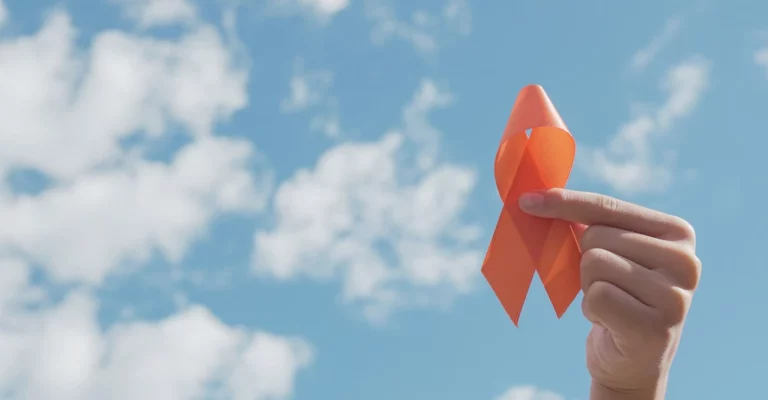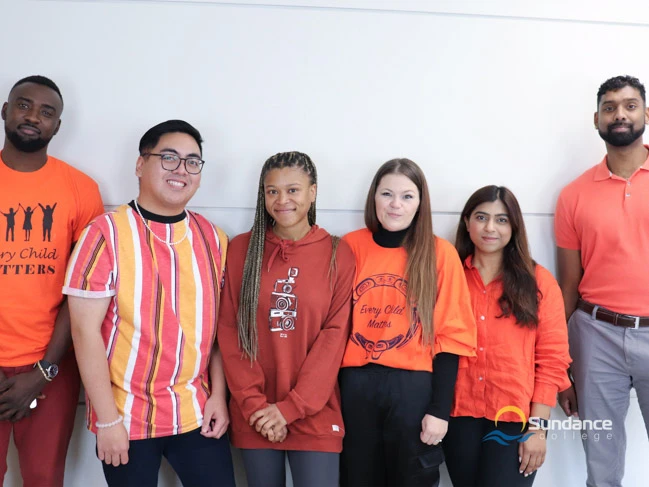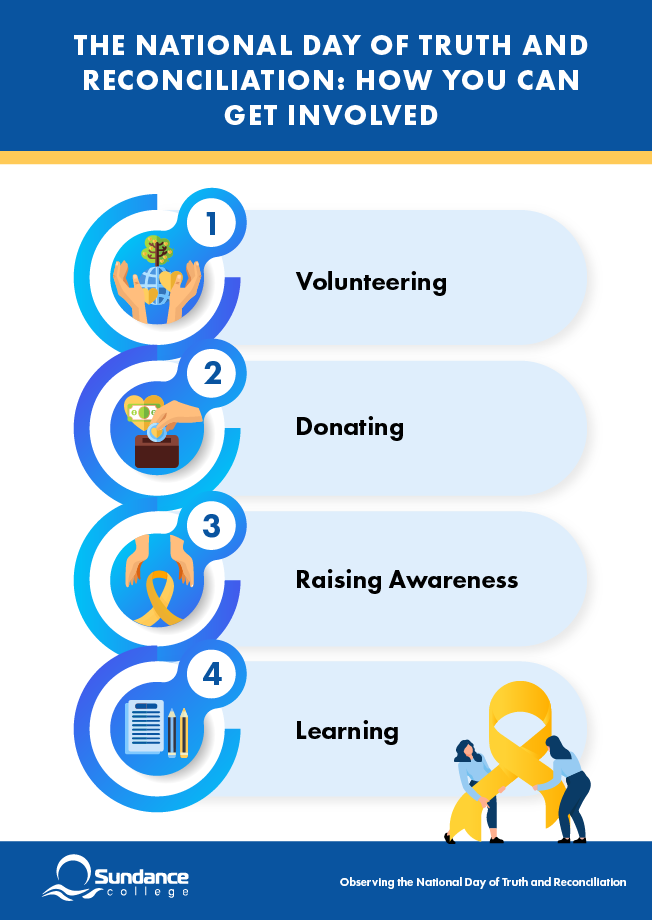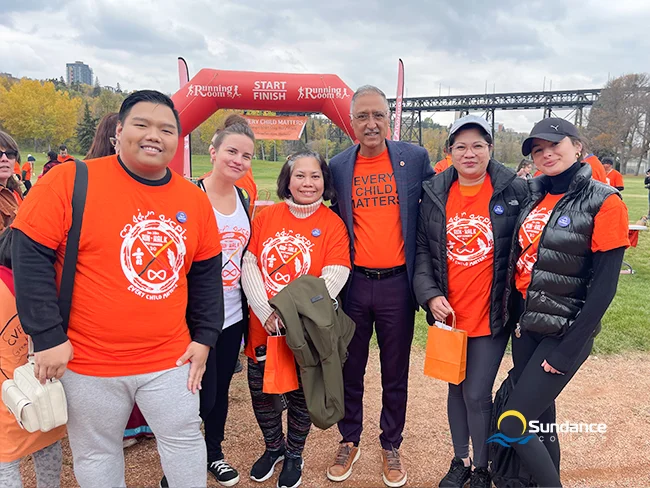Blog / Observing the National Day of Truth and Reconciliation
Observing the National Day of Truth and Reconciliation

Explore our Diploma Programs
- Business, Hospitality, and Legal
- Health and Human Services
- Technology
Table of Contents
For many children, the first day of school is a time of excitement and reunion. However, for Indigenous children, school was once a place of separation and hardship.
From 1867 to 1996, thousands of First Nations, Métis, and Inuit children across Canada were taken from their families and placed in residential schools, often far from home. The conditions in many of these schools were harsh, and the treatment many students received was severe.
To acknowledge the history of residential schools and to remind us that every child matters, the National Day for Truth and Reconciliation and Orange Shirt Day were established. Observed on September 30th each year, this day serves as a time to remember those who suffered, and those who were lost, and to work towards a more equitable future.
In this article, we’ll explore the history and meaning behind these observances, how the Sundance College team participates, and how you can help support Indigenous communities in your own way.
Listen to “Observing the National Day of Truth and Reconciliation”
The Origin of the National Day of Truth and Reconciliation
For many years, the true history of residential schools wasn’t fully acknowledged. However, as more survivors shared their stories, awareness grew, leading to a movement that called on the government to take meaningful action.
As part of the response, Canada launched the Truth and Reconciliation Commission. The Commission’s goal was to document the stories and experiences of survivors, their families, and the communities affected by the residential school system.
The Commission began its work in 2008, and in 2015, it released a final report with 94 Calls to Action — steps needed for real reconciliation between Indigenous and non-Indigenous people in Canada. That same year marked the first recognition of the National Day for Truth and Reconciliation (NDTR), a day dedicated to honouring survivors and acknowledging this important journey across the country.
The Significance of the Orange Shirt

Among the stories that have heightened our collective awareness is the account shared told by Phyllis Webstad, a residential school survivor from British Columbia.
Phyllis was just six years old when her brand-new orange shirt, a special gift from her grandmother, was taken away from her on her first day at a residential school. This made her feel that her feelings didn’t matter, that no one cared, and that she was worth nothing.
The orange shirt has since become a powerful symbol. Wearing orange on September 30th is a way to honour those children like Phyllis, acknowledge their trauma, and show our support and commitment to reconciliation.
What exactly can you do this Orange Shirt Day? Let’s take a look…

Take Action: Participate and Volunteer This NDTR
One of the most important goals of Indigenous communities is to preserve their history, culture, and identity for future generations. Supporting these efforts helps keep their stories heard and respected.
On Orange Shirt Day, you can participate by wearing orange shirts and volunteering in different events and activities hosted by the Indigenous organizations.
Here are some organizations that accept volunteers:
- Soaring Circle – charity focused on education and reconciliation
- Legacy of Hope Foundation – an Indigenous-led organization dedicated to educating people on the impacts of residential schools and supporting healing for survivors
By volunteering, you actively contribute to the healing process and help strengthen connections between Indigenous and non-Indigenous communities.
Support the Cause: Donate and Fund Indigenous Initiatives
Another meaningful way to support Indigenous communities is by providing financial contributions. Donations help fund vital services and programs that support Indigenous people, preserve their culture, and create opportunities for future generations.
Here are some foundations that provide direct support:
- The Gord Downie & Chanie Wenjack Fund is dedicated to furthering the conversation on reconciliation and improving the lives of Indigenous people across Canada.
- Canadian Roots Exchange (CRE) – a youth-led organization working toward reconciliation in our lifetime through programs that connect Indigenous and non-Indigenous youth.
By donating, you can help these organizations continue their important work in building a better future for Indigenous communities.
Spread the Word: Educate Yourself and Raise Awareness
Educating yourself is one of the most important steps in showing solidarity with Indigenous communities. By learning about their history and culture, you gain a deeper understanding of the challenges they’ve faced and the ways you can help support them. But it doesn’t stop there — sharing what you’ve learned helps raise awareness and encourages others to join the conversation and contribute to reconciliation efforts.
Here are several key options you can start with:
Learn from Public Resources
There are many accessible resources that provide valuable insights into the history, cultures, and experiences of Indigenous Peoples in Canada. Some of them are:
- We Are the Children – Legacy of Hope Foundation – a site dedicated to the survivors of the residential school system.
- Indigenous Peoples and Cultures – Canada.ca – this government resource offers a comprehensive overview of Indigenous communities and their rich cultural history.
- Our Home on Native Land – Native-Land.ca – a tool to learn about the Indigenous territories on which you live and work, helping you better understand their significance.
By exploring these resources, you’ll take the first steps toward becoming an informed ally, capable of contributing meaningfully to the reconciliation process.
Take 4 Seasons of Reconciliation Course
The first educational program we want to introduce you to is the 4 Seasons of Reconciliation, a multimedia program developed by Reconciliation Education and First Nations University of Canada. This course provides essential knowledge about truth and reconciliation, debunks myths and stereotypes, and highlights the contributions of Indigenous Peoples.
Designed for both Indigenous and non-Indigenous learners, the program covers topics many Canadians missed during their education. It supports the Calls to Action set out by the Truth and Reconciliation Commission and provides a solid foundation for understanding reconciliation in the workplace and beyond.
Sundance College students can access this course at a discounted rate of $25 (ask your instructor for details). Upon completion, you’ll receive a digital certificate, and 10% of the proceeds go toward scholarships at First Nations University of Canada.
Make a Difference Through Relevant Diploma Programs
If you want to gain more knowledge and use it to contribute to a new future for yourself, consider enrolling in one of our diploma programs that equip students to work closely with Indigenous youth and adults:
- Education Assistant Diploma Program – In this program, you’ll learn how to support and work with youth, including Indigenous children, through courses like Educational Psychology, Introduction to Child Development, Applied Behaviour Analysis, and Working with Exceptionalities. You’ll be prepared to foster environments where every child truly matters.
- Addictions and Community Health Professional (ACHP) Program – This program, approved by the Canadian Addictions Counsellors Certification Federation (CACCF), teaches you how to support at-risk people, including those from Indigenous communities. Courses like Addictions Fundamentals, Pharmacology of Addiction, Psychology of Addiction, and Family Dynamics will deepen your understanding of the unique challenges facing Indigenous communities.
As one of our ACHP alumni, Shelly B., shared about the program: “It was very informative and eye-opening about our history and Indigenous culture. It made me realize it’s not just black and white.”
Enrolling in one of these programs not only gives you the skills to make a real difference but also positions you to be an advocate for reconciliation and positive change in your community.
Sundance College’s Commitment to Truth, Reconciliation, and Orange Shirt Day

At Sundance College, we recognize the significance of the National Day for Truth and Reconciliation and Orange Shirt Day. These days represent a commitment to supporting and honouring Indigenous communities in meaningful ways.
Our dedication goes beyond raising awareness. We actively participate in local initiatives that support Indigenous peoples, and we prepare future professionals, such as addictions and community health workers and education assistants, with the knowledge, empathy, and mindset needed to work respectfully with Indigenous youth and adults.
As an example, our team from the Edmonton campus took part in Every Child Matters marathon, showing our support for this important cause.
Supporting Indigenous communities isn’t something reserved for a single day — it’s a year-round responsibility. Whether through social media advocacy, educational programs, or community involvement, we’re committed to making a positive impact.
If you’re passionate about making a difference, enroll in our programs. Together, we can help make sure every child feels the joy of their first day at school and the security of support every day of the year, for years to come — and extend that care to adults in need.
Subscribe for more career advice
Blog Categories
Share on:
